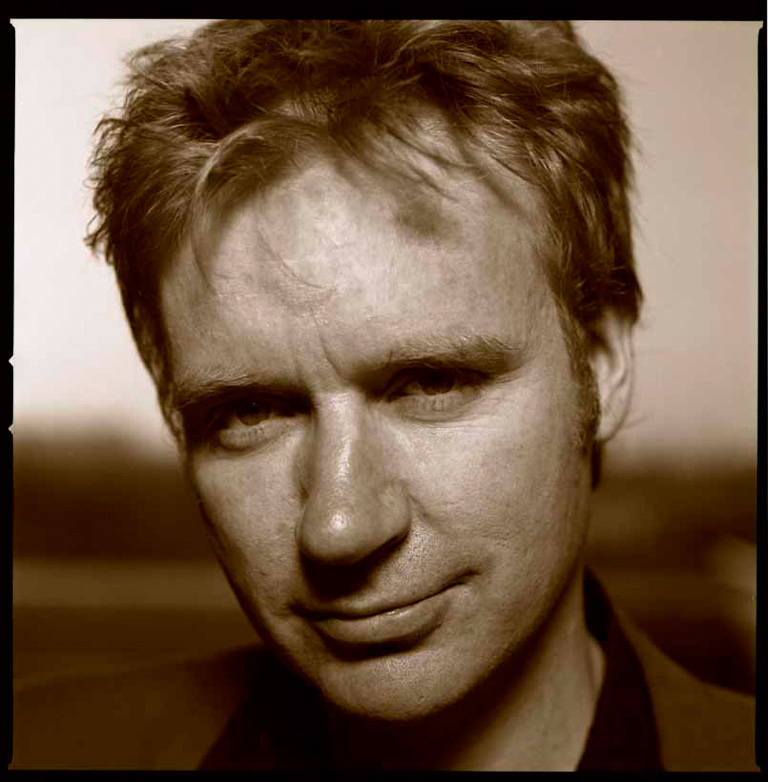Interview geführt von Tim Renner mit Haim Saban am 17.05.2004
Your first step into the Media business was becoming a bass player in your band. Why bass? Bass players are normally the shy guys like George Harrison, who hate to stay in the spotlight. Was the young Saban a guy like that?
[Haim Saban] George Harrison was a lead guitarist and – still shy. The bass player was Paul McCartney. That being said, yes, I was then a lot shyer than I am now.
You could have easily ended up in the music-business, an industry in a deep crisis right now. If you look back are you lucky that your main focus became TV instead?
[H.S.] I love the music business. I never left it. I’ve always been involved in it in parallel and as part of our TV business. I hope I can find an opportunity to get back into it some day.
Star Search, Popstars, Popidol – More and more, TV makes the Music Superstar. Where is the big difference between the role music-labels have to play and the work TV stations are already doing? Do you still need the music companies to exploit stars that where created by your own station?
[H.S.] Absolutely. The record company’s job is to nurture artists, support them and market their records. TV stations are not structured to fill those jobs, though they can help in promotion and exposure.
Some of your investors (like Thomas H. Lee Partners + Dain Capital Partners) are also part of the group around my former boss Edgar Bronfman, who bought Warner music. What is their strategy? A new media conglomerate? Are you looking for synergies between Pro/Sat1 and Warner Music?
[H.S.] This is a total coincidence and there are no grand plans here that I know of.
Historically Music-labels used to be divisions of hardware companies or film and broadcasting companies. The hardware companies like Phillips, Siemens and Thorn wanted to push their devices, RCA and CBS wanted to fill their channels. Nowadays Viacom and You have for example the channels, Nokia and Motorola the devices – will we see different players in the music industry very soon?
[H.S.] I think that this is very different from company to company. As far as our company goes, in the future, we will be as we have been in the past; opportunistic in our approach, and we hope, as mentioned, to find opportunities in the music business.
Due to limited resources more and more music-majors are leaving local repertoire and concentrate the budgets on anglo-american artists, to exploit them globally. What drives media, local or international content? Or does it have to be a good mixture out of both elements?
[H.S.] This is a very cyclical phenomenon. We’ve seen the industry go back and forth. In my view, it will continue to be this way forever.
An Mp3 music file doesn’t carry too much data. Music on top has the youngest and technically earliest adopters as consumers. The problems of the music industry seem just to show the top of an iceberg media in generally is facing. DVD is next to be ripped and distributed on the net. What is the learning TV and Movie industry could make out of the struggle of the music-business?
[H.S.] Get with the program!!!!!!!!!!!! Develop new business models. To this very day, some in the music industry won’t do that. Big mistake!!!!!!
Tivo might change the world of commercial TV forever, digital cable might lead to an sheer endless quantity of channels. How will the business-model of commercial Television look in the future with consumers technically enabled to skip the commercials – and a competition that might be more fierce than ever before?
[H.S.] Again, develop and adapt a new business model. We at P&S1 are working on that with a long term view to the future and belief that this represents an opportunity too.
8. A solution could be, TV generating and exploiting their own rights, TV becoming a distribution channel (via interlink with internet) and brands becoming more and more part of the content instead of traditional advertising…
[H.S.] I don’t understand this point which is more of a statement than a question. Right?
You are not a common investor, you have specialised in media investment. You invest in people and channels dealing with information and emotions. Is there a certain responsibility you feel in doing so, compared for example to investments into cars or other kind of hardware?
[H.S.] Absolutely.
I always remind our management team that our job is to both inform and entertain, all in a balanced, fair and responsible manner.
In the interview with the German Spiegel you admire the Israel clause in the Springer company ethics. You say, talking to der Spiegel, you are thinking about something similar for your own companies. There is a question behind: mind over matter? Where does the business end and the ethics start?
[H.S.] This is an irrelevant question to the book subject as presented to me.
Can any kind of art put it up with the capital. Whereas capital always needs to optimize and keep the process controlled – art is living by emotions, of spontaneous personalities . It is not controllable. In media companies you have to deal with art…How can art and investors capital come together and flourish?
[H.S.] Throughout history, they have. The balance is always found, though it may be different from one company to another because it is both in the artist’s interest and the capital interest to find such balance.
As an investor you have to find the right moment to sell off again. Isn’t it hard to put your energy into a TV station and to get rid of it by selling?
[H.S.] I have no plans of selling.
You seem to support liberal topics, and politicians like Bill Clinton. Do you see yourself as a kind of counterbalance to media entrepreneurs like Berlusconi or Murdoch, entrepreneurs clearly in favour for the conservatives?
[H.S.] I am a business man, not a politician and my views are mine to keep to myself.
As you could read in the press, you didn’t grew up really wealthy. Did your family have a TV-set during your childhood? What was your first TV experience?
[H.S.] There was no TV in Israel when I was growing up. By the time it came, I was already an entrepreneur, so …
What does music and a TV production have to have to excite someone like Haim Saban nowadays?
[H.S.] I love music… all kinds of music. I love TV… all kinds of TV. I love life and I can always manage to find a positive and exciting moment in almost any experience.













No Comment